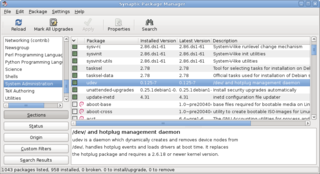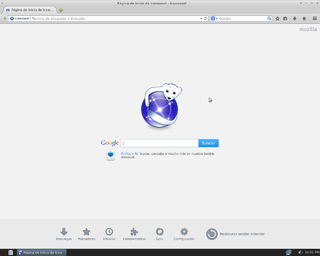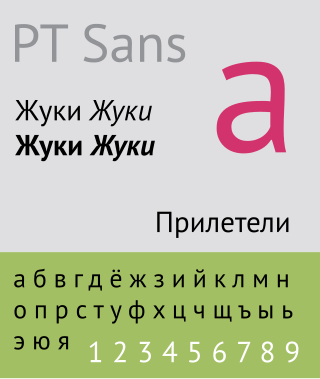
Debian, also known as Debian GNU/Linux, is a Linux distribution composed of free and open-source software and optionally non-free firmware or software developed by the community-supported Debian Project, which was established by Ian Murdock on August 16, 1993. The first version of Debian (0.01) was released on September 15, 1993, and its first stable version (1.1) was released on June 17, 1996. The Debian Stable branch is the most popular edition for personal computers and servers. Debian is also the basis for many other distributions that have different purposes, like Proxmox for servers, Ubuntu or Linux Mint for desktops, Kali for penetration testing, and Pardus and Astra for government use.

A Linux distribution is an operating system made from a software collection that includes the Linux kernel and often a package management system. Linux users usually obtain their operating system by downloading one of the Linux distributions, which are available for a wide variety of systems ranging from embedded devices and personal computers to powerful supercomputers.

A package manager or package-management system is a collection of software tools that automates the process of installing, upgrading, configuring, and removing computer programs for a computer in a consistent manner.

Advanced package tool, or APT, is a free-software user interface that works with core libraries to handle the installation and removal of software on Debian and Debian-based Linux distributions. APT simplifies the process of managing software on Unix-like computer systems by automating the retrieval, configuration and installation of software packages, either from precompiled files or by compiling source code.
Software versioning is the process of assigning either unique version names or unique version numbers to unique states of computer software. Within a given version number category, these numbers are generally assigned in increasing order and correspond to new developments in the software. At a fine-grained level, revision control is used for keeping track of incrementally-different versions of information, whether or not this information is computer software, in order to be able to roll any changes back.

Ubuntu is a Linux distribution derived from Debian and composed mostly of free and open-source software. Ubuntu is officially released in multiple editions: Desktop, Server, and Core for Internet of things devices and robots. The operating system is developed by the British company Canonical, and a community of other developers, under a meritocratic governance model. As of April 2024, the most-recent long-term support release is 24.04.
Technical variations of Linux distributions include support for different hardware devices and systems or software package configurations. Organizational differences may be motivated by historical reasons. Other criteria include security, including how quickly security upgrades are available; ease of package management; and number of packages available.

slapt-get is an APT-like package management system for Slackware. Slapt-get tries to emulate the features of Debian's (apt-get) as closely as possible.

In 2006, a branding issue developed when Mike Connor, representing the Mozilla Corporation, requested that the Debian Project comply with Mozilla standards for use of the Thunderbird trademark when redistributing the Thunderbird software. At issue were modifications not approved by the Mozilla Foundation, when the name for the software remained the same.
A Debian Pure Blend is a project completely inside of Debian targeting a server or a desktop installation in very broad and general terms.

Software remastering is software development that recreates system software and applications while incorporating customizations, with the intent that it is copied and run elsewhere for "off-label" usage. The term comes from remastering in media production, where it is similarly distinguished from mere copying.

Tkabber is a GPL instant messaging client for the XMPP protocol which uses the Tk toolkit for the GUI. It runs on anything to which Tcl/Tk is ported: almost any X-based system, Microsoft Windows, and Mac OS X.

The Public Type or PT Fonts are a family of free/libre fonts released from 2009 onwards, comprising PT Sans, PT Serif and PT Mono. They were commissioned from the design agency ParaType by Rospechat, a department of the Russian Ministry of Communications, to celebrate the 300th anniversary of Peter the Great's orthography reform and to create a font family that supported all the different variations of Cyrillic script used by the minority languages of Russia, as well as the Latin alphabet.

FreedomBox is a free software home server operating system based on Debian, backed by the FreedomBox Foundation.
A delta update is a software update that requires the user to download only those parts of the software's code that are new, or have been changed from their previous state, in contrast to having to download the entire program. The use of delta updates can save significant amounts of time and computing bandwidth. The name "delta" derives from the mathematical science use of the Greek letter delta, Δ or δ to denote change.

Zim is a graphical text editor designed to maintain a collection of locally stored wiki-pages, a personal wiki. It works as a personal knowledge base and note-taking software application that operates on text files using markdown. Each wiki-page can contain things like text with simple formatting, links to other pages, attachments, and images. Additional plugins, such as an equation editor and spell-checker, are also available. The wiki-pages are stored in a folder structure in plain text files with wiki formatting. Zim can be used with the Getting Things Done method.
Long-term support (LTS) is a product lifecycle management policy in which a stable release of computer software is maintained for a longer period of time than the standard edition. The term is typically reserved for open-source software, where it describes a software edition that is supported for months or years longer than the software's standard edition.

RPA RusBITech JSC is a Russian technology company specializing in production of high technology solutions for Russian state enforcement structures, mainly for the Russian Army. The most known product is the computer operating system called Astra Linux which is nowadays used almost totally throughout Russian military forces. The main Russian Army headquarters, The National Defense Management Center's, information systems are based on Astra Linux. The Director General of RusBITech is Alexei Bocharov.
WINE@Etersoft is a Microsoft Windows compatibility layer available for Linux and FreeBSD. This compatibility layer enables many Windows-based applications to run on Linux operating systems, or FreeBSD.















